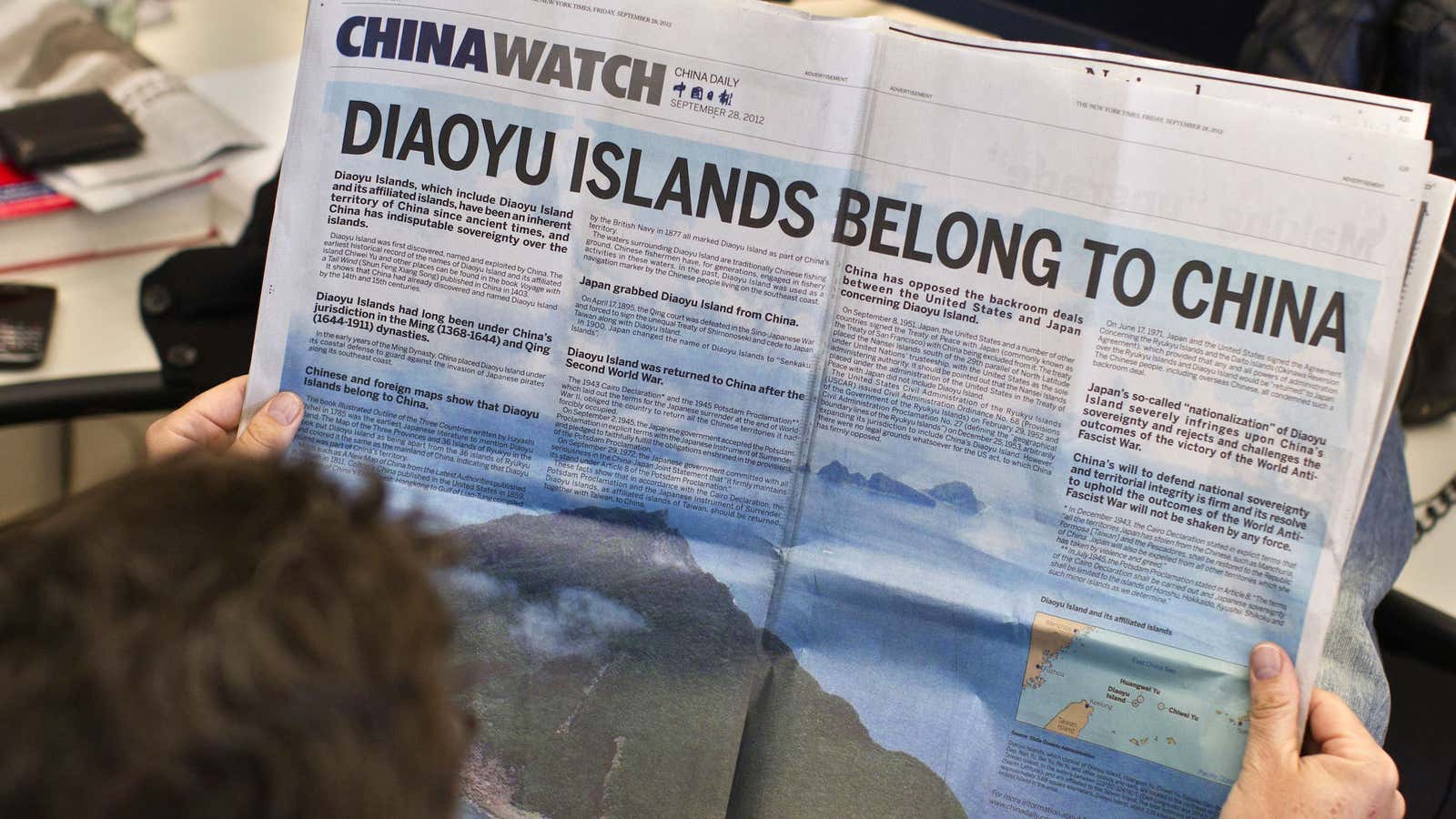China doesn’t just exert heavy control over state media; its influence over media outlets outside China is expanding, according to a new report by Freedom House.
For the past three years, the government has been investing millions of dollars in a global soft-power push. State newspaper China Daily publishes inserts of its English edition in major Western papers from the Washington Post to the New York Times. China’s Central Television, or CCTV, has hired dozens of experienced reporters from the US for its Washington bureau and rivals other foreign operations like Al-Jazeera America.
According to the report, China is also doing things like offering free editorial content to Latin American, African and Asian news organizations that can’t afford to send correspondents to China. It’s also subtly exerting influence over Chinese-language media in Taiwan, Hong Kong, and Chinese diaspora communities.
China has donated aid money, for example, to state-run media in Africa and Latin America and flown their journalists to China for training. Left-leaning countries like Bolivia and Venezuela have also bought communications satellites (pdf, p. 20) from China. In Southeast Asia, governments with close diplomatic ties to Beijing, like Vietnam and Cambodia, appear to be pressuring their media to let up on criticism of China.
Perhaps most remarkable is that the traditionally critical Chinese-language press outside the mainland are starting to fall in line. The report notes that in Hong Kong, influential newspapers like the Ming Pao Daily, Sing Tao Daily and Sing Pao are now controlled by tycoons with core business interests on the mainland and who have close ties to officials. At least 10 Hong Kong media owners have been appointed to the Chinese People’s Political Consultative Congress, an advisory board that’s something of who’s who in Chinese elite society. Publications that remain critical of China, like the tabloid Apple Daily, suffer advertising boycotts by real estate tycoons, according to the report. One of Taiwan’s largest media syndicates, China Times Group, is now controlled by the by the chairman of Want Want China, a giant snack and drink company, who has said that reunification with China is inevitable.
The Chinese diaspora is also becoming more exposed to Chinese state-directed coverage. Businesses in Chinese communities abroad who run operations on the mainland hesitate to advertise with publications critical of the country because Chinese officials hint that their businesses may be affected, the report said. “Although living in Australia, ‘new migrants’ from China are still surrounded by the Chinese media dominated by Chinese government views and narratives,” Feng Chongyi, professor at the University of Technology Sydney’s China Research Centre said (pdf, p.37).
